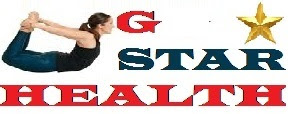Infectious Mononucleosis - Kissing Disease
What is mono?
Symptoms
Diagnosis
Treatment
Prevention
Further information
What is mono? Infectious mononucleosis (also known as "mono" or the "kissing disease") is a fairly common viral disease that usually affects adolescents and young adults, including college students. The infection is typically caused by the Epstein-Barr virus but may be caused by other related viruses.
Many college students have already developed immunity or resistance by the time they reach college age. Once you have had mono it is unlikely that you will ever get it again.
Symptoms usually appear 20-50 days after infection. The severity of symptoms varies greatly between individuals. Symptoms may be so mild that one can have mono without knowing it. In other cases, symptoms may be severe enough to require hospitalization. Common symptoms include:
Severe sore throat, which is almost always present and lasts about 6-10 days. The throat may be very red, with white spots or pus on the tonsils.
Fever of 100-103° F (37.8-39.4° C), which is usually worst during the first week and seems to worsen at night.
Swollen, tender glands (lymph nodes) in the neck, lasting up to one month after you are feeling well.
Fatigue
Headaches
Diagnosis: If you have any symptoms and are concerned that you may have mono, you should visit a clinician. See Schedule an Appointment.
The clinician will perform a physical exam, including throat and glands. Because mono symptoms are similar to those of other infections, the clinician will try to determine whether your symptoms are those of mono, strep throat or another viral infection. The clinician may swab the back of your throat.
If streptococcus (strep) is present, you will be treated with an antibiotic.
If streptococcus is not present and your symptoms continue for 7-10 days, you should return to your clinician for possible further testing.
Blood tests for mono measure antibodies to the virus and therefore are not usually positive until symptoms have been present for one week or more.
Treatment: Like the common cold, mono is a viral infection with no cure. Antibiotics do not work as a treatment for mono.
You can follow these self-care measures to feel better.
Gargle: To remove pus from the tonsils and reduce throat pain, gargle with one teaspoon of salt (or baking soda) dissolved in a glass of very warm water. You can purchase non-prescription medications like Chloraseptic gargle or lozenges, or your clinician may write a prescription for gargles that reduce throat pain and make swallowing easier.
Apply a heating pad or a warm washcloth to swollen neck glands to help relieve tenderness.
Take medication: For fever, sore throat, head and body aches, ibuprofen or naproxen (Aleve), available without prescription. Follow directions on packaging. Avoid acetaminophen (Tylenol) because of possible liver inflammation that is sometimes associated with mono.
In addition, you need to take special care of yourself during recovery.
Refrain from vigorous activities: Because mono affects the entire lymph system, including the spleen (located under your left lower rib cage), avoid vigorous activities such as football, soccer or running. Do not play contact sports until at least two weeks after symptoms resolve. You can do mild exercises such as walking or swimming, as long as the activity doesn't increase fatigue.
Rest at least eight hours per night: Attend classes if you feel able, but plan to rest often.
Eat small amounts of food frequently, especially if your appetite is decreased. Milkshakes (or supplement drinks such as Boost or Ensure) between meals are a good addition, as are snacks of peanut butter, eggs and cheese. If you have a sore throat, blend foods or eat them with liquid to make them easier to swallow.
Drink plenty of non-caffeinated fluids to avoid dehydration.
Avoid alcoholic beverages and drugs not prescribed by your clinician for at least six weeks, because of possible liver inflammation.
You will probably feel most symptoms for the first two weeks of the infection. After this time you should gradually improve, but expect your energy level to be reduced longer. The recovery process varies from person to person, so base your activities and check-ups on how you feel.
Prevention: Mono is usually spread by close contact from one person to another, hence the name "kissing disease." The infection is not highly contagious and does not usually spread to roommates. As a precaution, you should avoid sharing drinking glasses and kissing until your sore throat and other symptoms have disappeared for several (4-6) weeks. Be sure to cover coughs and sneezes, and wash your hands thoroughly and often.















.jpeg)



Kissing may cause a disease I came to know through your topic.
ReplyDeleteV S Thind, New Delhi